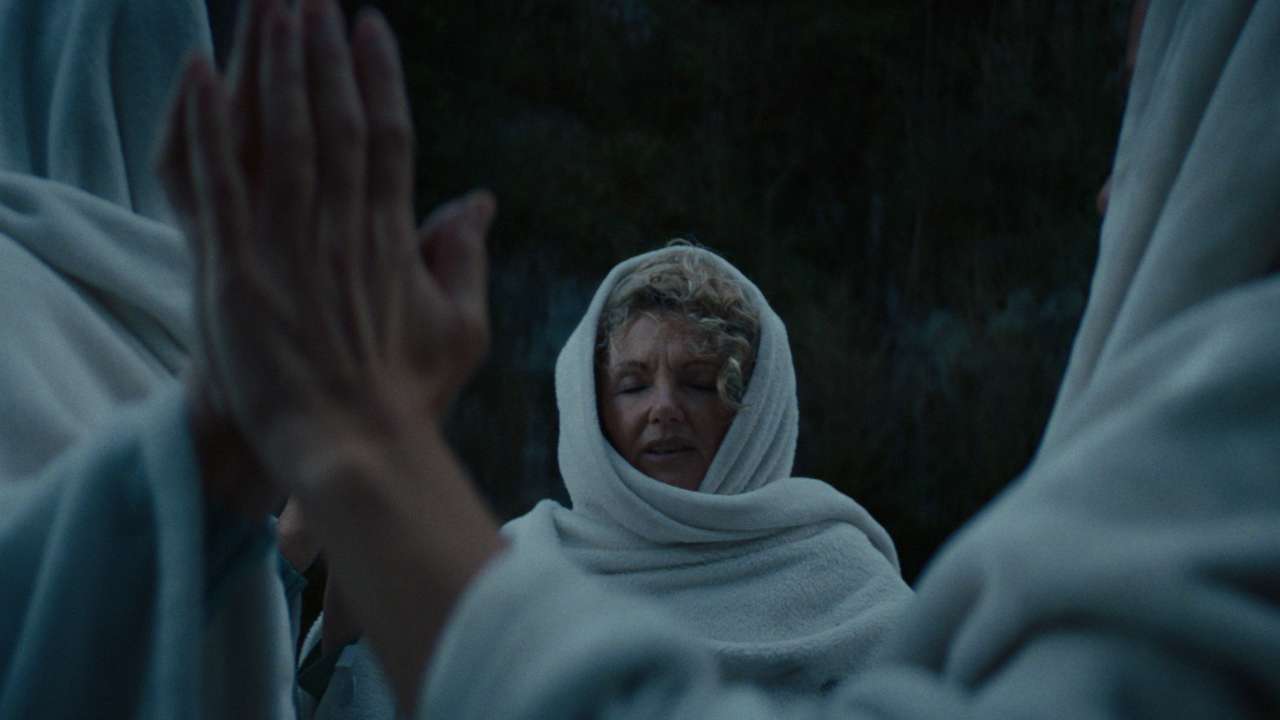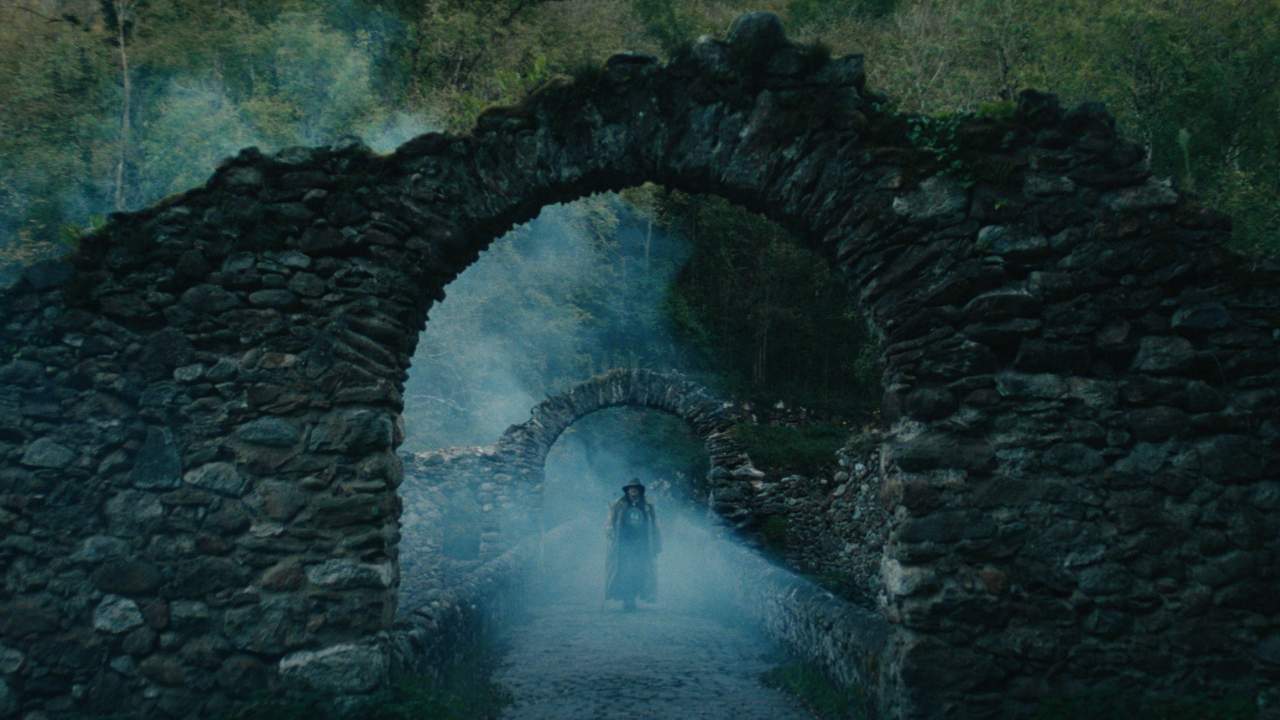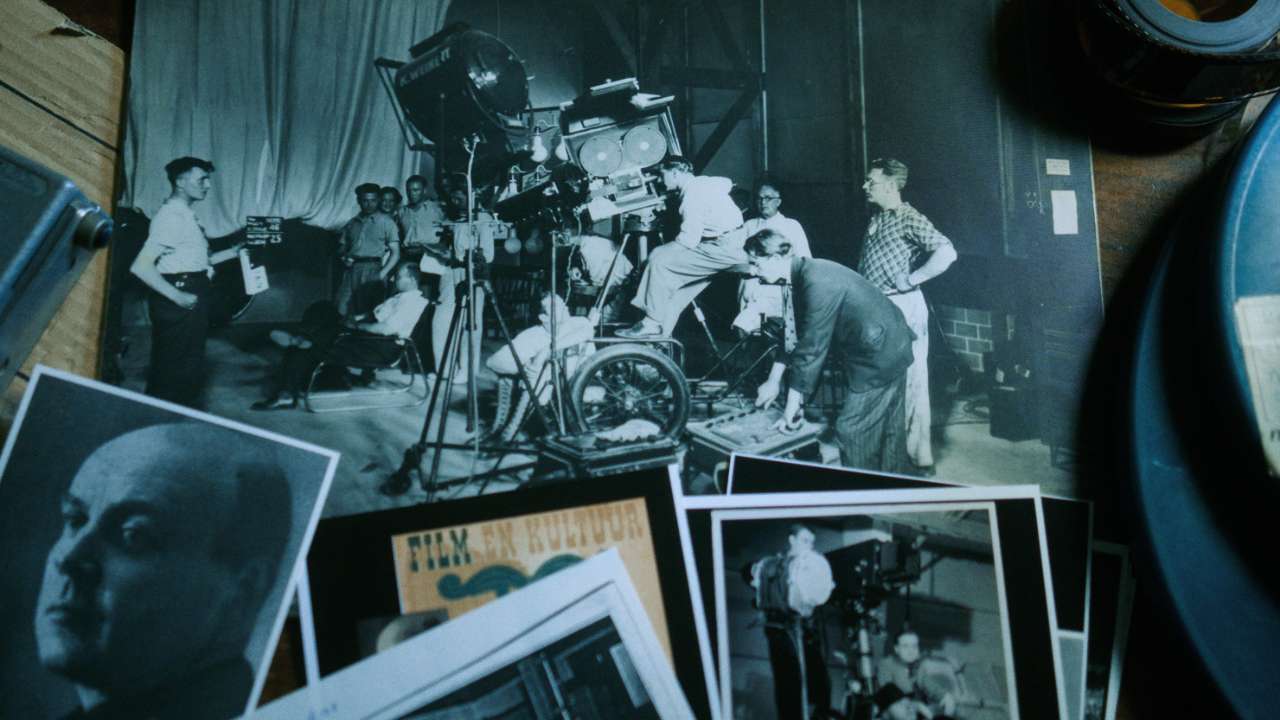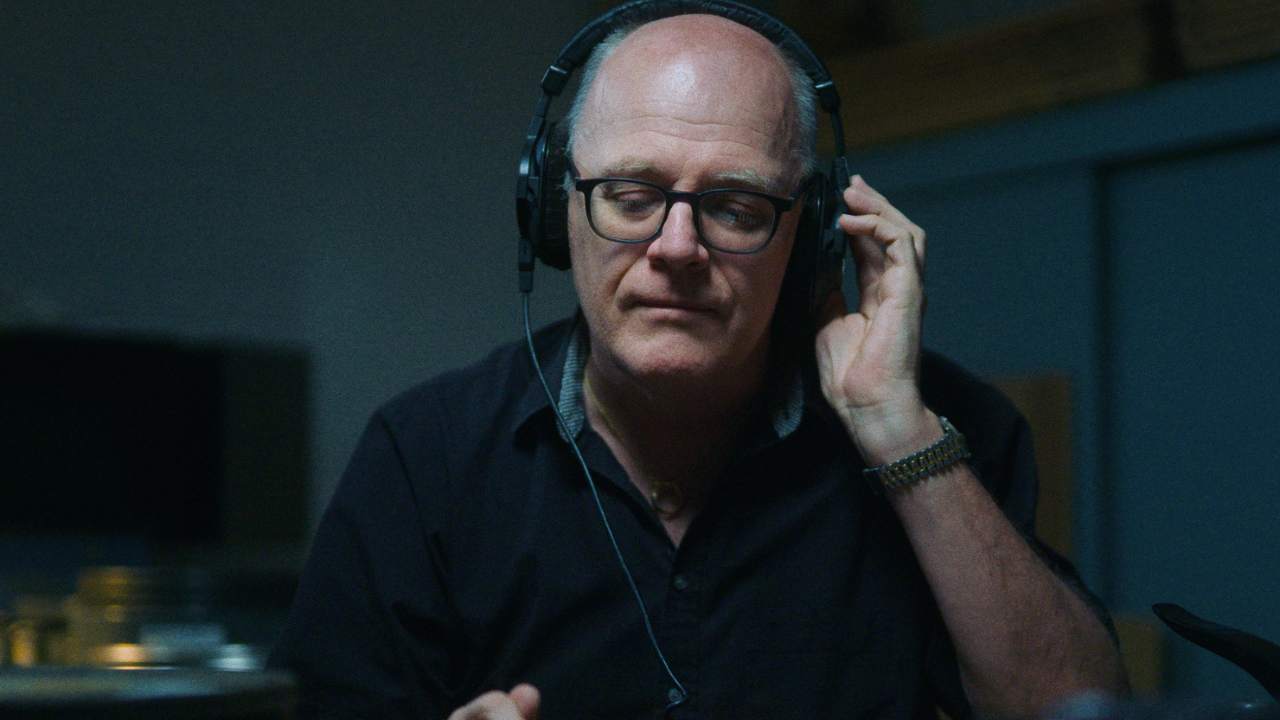Disinformation, propaganda and fanatical belief in one’s duty are powerful forces that not only shape collective imagination or create false prophets but also justify morally questionable decisions. The programme of this year’s International Documentary Competition features films which – though focusing on characters embedded in entirely different historical and cultural contexts – meticulously analyse the mechanisms of manipulation, myth-making and self-creation, examining the fine line between lofty idealism and utterly unstable morality.
Both Richard Stanley – former Hollywood horror film director – from the film Shadowland (dir. Otso Tiaïenen), and Jan Teunissen – sometimes compared to Leni Riefenstahl – from The Propagandist (dir. Luuk Bouwman) – are men who have believed in their own narratives. The former in a spiritual mission, the latter – in artistic necessity. They are by no means innocent figures who have fallen prey to the power of (self) illusion. The consequences of their actions extend beyond the personal dimension, hence the documentaries become much more than mere portrayals, provoking deeper reflection on how the contemporary world functions and is structured.
The Dark Story of a Prophet
Shadowland by Otso Tiainen is a documentary that was originally intended to tell the story of a spiritual community living in a Pyrenean enclave, a place steeped in esotericism and legends of occult rituals. The filmmaker set out to portray a peculiar, harmonious group of people who rejected civilisation and sought to find themselves in a world of magic and spiritual experiences. Among them was the aforementioned Richard Stanley, who – after his career collapsed – moved to France and became a local, self-proclaimed spiritual leader.


The documentary takes on an entirely different, disturbing tone when, during its production, serious accusations emerge against the former director – charges of domestic violence and assault. The utopian façade associated with a prophet begins to crack under the weight of inflicted harm and cult manipulation, and the community that had so far seen him as an enlightened guide faces a difficult question: was their spiritual enclave a genuine space of transformation, or merely a stage for a false mentor? Shadowland gradually veers from its initial esoteric path and becomes an investigation – in a legal as well as existential sense.
Tiainen reveals how easily one can be seduced by narratives of renewal, purification and spiritual guidance – as long as they are presented in the right manner. Stanley appears here as a master of self-creation – a mythmaker who reinvented himself, and not for the first time – first emerging as a rebel against Hollywood, then as the chosen one of the White Lady, and finally as a guide to the mysterious “Zone”. It’s a film that begins with myth and ends with attempts to expose the truth, becoming a reflection on the dangers of idealised projections.
At Any Cost
Meanwhile, Luuk Bouwman reaches into the archives to analyse the life of Jan Teunissen – a pioneer of Dutch cinema born to a wealthy family and simultaneously one of the Third Reich’s most infamous propagandists. The documentary revolves around an interview with Teunissen in which, two decades after the war – showing no remorse whatsoever – he discusses his film career and the decision to join the Nazis.
At first, the camera was merely meant to help him capture snippets of everyday life on film, particularly unique moments from his children’s early years. Soon, however, this innocent passion for directing began to evolve into a profession and led to his first – somewhat successful – steps in the film industry. Before 1939, Teunissen presumably had no idea that his creative passion would consume him to such an extent that he would desire to continue it at any cost. When the Netherlands ultimately fell into the clutches of the Third Reich, the question he asked himself came down to a cold calculation: “Which party will give me the greatest chance to develop Dutch cinema?” There could be only one answer. Out of love for the Tenth Muse, the director devoted himself in service of a totalitarian regime, collaborating with the occupier and co-creating propaganda targeted against Jews.


Teunissen justified his actions with pragmatism – he wanted to save cinema, develop the industry, allegedly without “personal” prejudices against the victims. A bitter confirmation of these words might be found in the fact that one of his earlier films, Friday, Night or Sabbath – shot in Amsterdam’s Jewish quarter – enjoyed considerable popularity. What’s more, the director confesses with no small satisfaction – as we hear from the recording – that he even received a letter from Jews stating that after watching the film, they converted to Judaism. The film was later used as a tool for spreading anti-Semitic propaganda.
In this shocking documentary, Bouwman demonstrates how easily personal ambitions can transform into moral bankruptcy. Teunissen not only gained access to the resources and influence of the German Nazis but also paraded in an SS uniform as the cinematic tsar of occupied Holland, seemingly completely oblivious to his role in the machinery of violence and hatred.
Thirteen recent films from around the world are going to compete for the Golden and Silver Horns in the International Documentary Competition.
Passes for the 65th Krakow Film Festival are now on sale!
The Krakow Film Festival is on the exclusive list of film events qualifying for the Academy Awards® in short film categories (fiction, animation, documentary) and feature-length documentary, the European Film Awards in the same categories, and serves as a qualifying event for the BAFTA Awards.
The Krakow Film Festival is organised with financial support from the City of Krakow, the Ministry of Culture and National Heritage, the Polish Film Institute, the Creative Europe MEDIA Programme. The Polish Filmmakers Association serves as co-organiser.
The KFF at the Barbican is co-organised by the National Cultural Centre as part of the cultural programme of the Polish Presidency of the Council of the European Union 2025.
The 65th Krakow Film Festival will be held in cinemas from 25 May to 1 June 2025, and online on KFF VOD from 30 May to 15 June 2025.